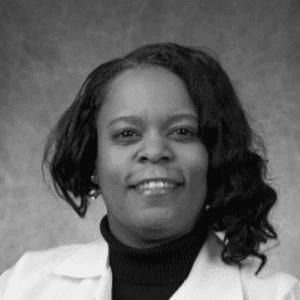The Impact of HBCUs on Black Representation in Nursing
 Credit: Getty Images
Credit: Getty ImagesBlack Americans make up 13.6% of the U.S. population, but only 6.7% of working registered nurses. Increasing representation can help reduce the nursing shortage and improve healthcare outcomes, especially for Black patients. Learn more about nursing programs at historically Black colleges and universities (HBCUs), the benefits of improving racial representation in nursing, and resources for Black nurses.
The Importance of Advancing Representation in Nursing
Advancing representation in nursing can help solve some of the most pressing concerns in contemporary healthcare, especially health outcomes for Black patients. The recruitment and retention of Black nurses can play a role in improving underrepresentation and health disparities.
Most research on race concordance (when the provider and patient share the same race) explores the role of physician and patient race concordance. It also seems logical that nurse-patient concordance could have the same outcomes as physician-patient concordance.
- Asian, Black, and Hispanic patients are more likely to seek preventative care when their provider shares their racial or ethnic background.
- Black infant mortality declines significantly with physician-patient racial concordance.
- For Black men, racial concordance could reduce mortality by 19%.
- Among Black mental health providers, 83% believe that racial concordance is important to patient outcomes.
Paving the Way for More Black Nurses
HBCUs make up just 2% of all colleges and universities in the U.S., but in 2017, they graduated 6.7% of all new BSNs. Half (51%) of these graduates are Black, demonstrating that HBCUs play a significant role in increasing the representation of Black registered nurses.
Top HBCUs invest heavily in expanding their teaching capacity and developing or adopting innovations to address health equity and the impact of racism in underserved communities. Some innovations at HBCU nursing schools include:
Prairie View A&M University (PVAMU)
PVAMU’s curriculum reflects the need for culturally competent care and the health challenges disproportionately affecting Black populations, such as asthma and environmental pollution. Specific courses include health disparities, care of special populations (asthma), environmental health nursing, nursing and the LGBTQ+ population, and nursing and cultural diversity.Winston-Salem State University
Winston-Salem State University’s School of Health Sciences and the University of North Carolina School of the Arts Media and Emerging Technology division are partnering to add virtual reality to Winston-Salem’s nursing program.Claflin University
Claflin University launched The Institute of Teaching and Nursing (TITAN), a program to improve access to and interest in nursing and education careers. Its initiatives include summer institutes for high school students to explore nursing as a career.Langston University
Langston University boasts a 91% pass rate for the National Council Licensure Examination (NCLEX), which is higher than the national rate. It focuses on providing culturally appropriate care for diverse clients across the lifespan.
Why Attend an HBCU for Nursing?
Attending an HBCU nursing program can provide many advantages, academically and throughout your career. While they attract students from every kind of family, they often provide special support for students who are the first in their families to attend college.
Overall, Black students at HBCUs are more likely to graduate than those at comparable, primarily white institutions. A Gallup Poll found that graduates from HBCUs experience higher levels of well-being, especially financial. In addition, HBCUs typically cost less than other schools.
- HBCU nursing programs provide diverse role models in nursing and healthcare leadership and teach students how to advance their careers as Black women and men.
- HBCUs were historically created to educate Black Americans. But, many HBCUs today have a diverse faculty and student body across race, ethnicity, and sexual orientation. While most HBCU nursing school students are Black women, they also attract aspiring nurses of all races and ethnicities.
- HBCUs often have close-knit alumni networks, which can help you find mentors, job opportunities, and sources for advice throughout your career.
Success Stories from Coppin State Alumni
NurseJournal spoke with Shawn Hendricks MSN, RN, Ed., the director of nursing for medicine, cardiac Services, and dialysis at the University of Maryland Medical Center. With a strong background in nursing, Shawn shared her insights and experience of attending an HBCU nursing program and its impact on her career as a Black nurse.
How has attending an HBCU nursing program influenced your career as a Black nurse?
Attending an HBCU nursing program influenced my career as a black nurse by providing a gateway into the profession for myself and other generations of African-American nurses with limited financial resources, opportunities, and educational options. This presented an opportunity to have a career and not just a job, with medical benefits, growth opportunities, compensation and retirement benefits otherwise not often available to African Americans.
Can you share any success stories or personal experiences from your time in an HBCU nursing program that highlight the unique advantages and opportunities it provided?
The unique advantage that my HBCU nursing program provided was the opportunity to be taught and mentored by educators who look like me and share the same values as I do. In addition, it was affordable and likewise provided baccalaureate-level nursing programs up through doctoral-level degrees.
How do HBCU nursing programs foster a sense of community and support among their students, and what impact does this have on their educational journey and future careers in nursing?
HBCU nursing programs foster a sense of community and support among their students by providing a level of comfort, nurturing, understanding, and belonging because they understand the level of anxiety and stress associated with being a minority in the medical profession. This supportive environment assists students in moving forward in their programs without the worry of discrimination and racial bias by their peers and instructors.
This positive impact stretches beyond the young nurse on their educational journey, it impacts the community in which one lives and serves. It gives the nurse and the individuals from the community a sense of pride to be served by individuals who are of the same cultural and ethnic background, and share similar experiences. This opens up the opportunity and possibilities for future careers in nursing for minorities who didn’t think it was possible.
How HBCUs Can Further Support Black Nurses
Other schools can also learn from HBCU nursing schools and replicate their success in areas such as racism in nursing schools and approaches that can help Black students finish school. HBCUs and other nursing schools can also partner to share access to resources.
In Hendricks’ experience, “HBCU nursing programs address racism in nursing schools and promote diversity and inclusivity in the nursing profession by including the study of these topics in their curriculum, workshops, and institutional policies.”
A program like the HBCU Learning Collaborative is a great example of how to support students. It meets regularly to share successes and challenges in nursing education, focusing on helping HBCU nursing students finish their education and pass the NCLEX-RN..
Resources for Black Nurses
National Commission to Address Racism in Nursing
Collaboratively established by the American Nursing Association, National Black Nurses Association, and other partners, this commission addresses racism in nursing. Their website offers valuable resources and actionable steps for nurses to combat racism.
Dismantling Racism Works (dRworks)
dRworks provides an online workbook packed with extensive resources aimed at understanding and undoing the effects of racism. Their platform offers valuable insights and tools to combat racism effectively.
National Black Nurses Association (NBNA)
NBNA serves as a professional association for Black nursing students and nurses. With over 200,000 members and 115 local chapters, NBNA provides networking opportunities, publications, scholarships, and professional development resources to foster growth within the Black nursing community.
Society for the Analysis of African American Public Health Issues (SAAPHI)
SAAPHI focuses on education, research, mentoring, and policy recommendations to promote health equity within the African diaspora. Their efforts aim to address public health issues affecting African Americans and drive positive change in their communities.
Meet Our Contributor

Shawn Hendricks MSN, RN, Ed. is the Director of Nursing for Medicine, Cardiac Services, and Dialysis at the University of Maryland Medical Center. With over 26 years of experience, she has held various roles, from clinical nurse to nurse manager, leading to her current position. Proudly educated at Coppin State University, an HBCU, Shawn attributes her success to the knowledge, skills, tools, and motivation she gained from her alma mater. As a dedicated healthcare professional, she is committed to providing exceptional patient care and serves as an inspiration to aspiring professionals in the field.
Page last reviewed on October 27, 2023
You might be interested in

The Best HBCU Nursing Programs
The best HBCU nursing programs offer an environment where students from any racial background can excel. Learn more about HBCU online nursing programs, including how to apply and pay your tuition.

Combating Implicit Bias in Nursing
Implicit bias causes healthcare inequities. Learn how you can fight implicit bias as a nurse.